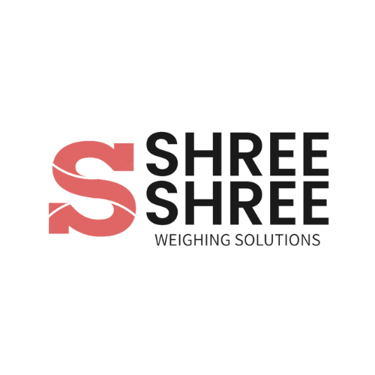The Benefits of Legal Metrology Certification for Weighing Scales in India
In India, businesses that deal with commercial transactions based on weight or measure are required to adhere to the Legal Metrology Act, 2009. This includes the certification of weighing scales used in the trade of goods. For business owners, understanding the significance of Legal Metrology certification is crucial for ensuring compliance, avoiding penalties, and building customer trust. In this blog, we’ll explore the benefits of Legal Metrology certification for weighing scales and why it’s essential for your business.
5/13/20254 min read


1. Legal Compliance and Avoiding Penalties
The Legal Metrology Act, 2009 mandates that all weighing and measuring instruments used for commercial transactions must be certified for accuracy and compliance with national standards. This applies to a wide range of businesses, including retail stores, grocery shops, supermarkets, pharmacies, and industrial manufacturers.
By obtaining Legal Metrology certification for your weighing scales, you ensure that your instruments are legally compliant with Indian regulations. Failing to comply with these laws can lead to penalties, fines, or even the confiscation of your equipment. Certification ensures that your business operates within the legal framework and helps you avoid such repercussions.
2. Ensures Fair and Accurate Transactions
One of the key benefits of Legal Metrology certification is that it ensures fair transactions for both businesses and consumers. Certified weighing scales are tested for accuracy, ensuring that customers get what they pay for in terms of weight.
For example, in a grocery store, using a Legal Metrology certified scale ensures that customers are charged accurately based on the weight of products like fruits, vegetables, and bulk items. This fosters customer trust and prevents disputes related to weight discrepancies.
By using certified scales, you can be confident that you’re not only following the law but also maintaining ethical business practices.
3. Building Customer Trust and Satisfaction
Accurate measurements directly impact the customer experience. Customers are more likely to trust businesses that use certified weighing scales because it reassures them that they are getting the right value for their money. This is especially important for businesses in sectors like pharmacy, jewelry, and grocery, where even small discrepancies in weight can lead to significant financial consequences for the consumer.
By using Legal Metrology certified scales, you show that your business values accuracy, fairness, and transparency, leading to improved customer loyalty and satisfaction.
4. Protecting Your Brand Reputation
In today’s competitive market, brand reputation is one of the most valuable assets a business can have. Legal Metrology certification plays an important role in protecting your brand’s reputation by ensuring that you are adhering to national standards for accuracy and fairness.
Using uncertified or inaccurate weighing equipment can result in negative publicity or customer complaints, which can harm your brand’s image. Certification helps you demonstrate your commitment to providing reliable services and fair transactions, ultimately enhancing your brand’s reputation in the market.
5. Increased Confidence in B2B Transactions
In B2B (business-to-business) transactions, accurate measurements are just as important as they are in consumer transactions. Manufacturers, wholesalers, and suppliers often need to ensure that the quantities and weights of goods are accurately recorded when dealing with their business partners.
For example, in the manufacturing sector, suppliers need to measure raw materials like chemicals, metals, or grains accurately to ensure that the right quantity is supplied to manufacturers. Having Legal Metrology certified scales ensures that both parties in the transaction are confident that the correct quantities are being traded.
Moreover, certification is often a requirement for businesses wishing to expand into new markets, particularly for international trade, where compliance with standards can make or break deals.
6. Enhancing Operational Efficiency
Having a Legal Metrology certified weighing scale ensures that your business is operating with precision and efficiency. Scales that are properly calibrated and certified for accuracy reduce the need for re-weighing or handling discrepancies, leading to faster transactions and smoother operations.
For example, in a retail environment, certified weighing scales with features like automatic tare functions or price computing capabilities can streamline the checkout process, enhancing customer satisfaction and reducing wait times.
7. Helping with Taxation and Audits
In some cases, businesses are required to keep accurate records of transactions for taxation and auditing purposes. Legal Metrology certification guarantees that the measurements you’re recording are legally compliant and accurate.
For example, businesses that deal with weighed goods may be required to submit reports for tax purposes or during government audits. Using certified scales ensures that your measurements are reliable, which can simplify the auditing process and prevent issues during tax assessments.
8. Preventing Fraudulent Practices
Using uncertified scales or improperly calibrated weighing instruments can lead to fraudulent practices, whether intentional or accidental. For example, a business that uses a faulty scale may overcharge customers by delivering more weight than promised, resulting in legal consequences and customer distrust.
Legal Metrology certification prevents these situations by ensuring that your scales are regularly inspected and calibrated, reducing the risk of fraudulent practices or errors.
9. Compliance with International Standards
For businesses that engage in international trade, having Legal Metrology certification can also help ensure compliance with international standards for weights and measures. This is particularly important for industries involved in the export and import of goods, such as agriculture, pharmaceuticals, and electronics.
In many cases, international trading partners may require verification that your weighing instruments meet specific standards for trade compliance. Certification not only meets Indian regulatory requirements but also helps your business align with global trade standards, facilitating smoother cross-border transactions.
10. Regular Calibration and Maintenance
A significant advantage of Legal Metrology certification is that it often includes regular calibration and maintenance of your weighing scales. This ensures that your equipment stays accurate over time, reducing the risk of errors and extending the lifespan of your scales.
For example, certified scales must undergo periodic calibration checks by authorized personnel, ensuring that they remain accurate and reliable throughout their use.
Regular calibration reduces maintenance costs and ensures that your equipment remains in top condition for years.
Conclusion
Legal Metrology certification is more than just a regulatory requirement – it’s a vital tool for ensuring fair, accurate, and transparent business practices. By investing in certified weighing scales, businesses can enjoy the benefits of legal compliance, customer satisfaction, brand protection, and operational efficiency.
At Shree Shree Weighing Solutions, we offer a range of Legal Metrology certified weighing scales suitable for various industries, including retail, manufacturing, pharmaceuticals, and more. We are committed to providing high-quality, reliable scales that help your business stay compliant and efficient.
Ready to Ensure Legal Compliance for Your Business?
📞 Contact us today to learn more about our Legal Metrology certified weighing scales.
📍 Visit our Ahmedabad showroom, or schedule a demo at your business across Gujarat.
